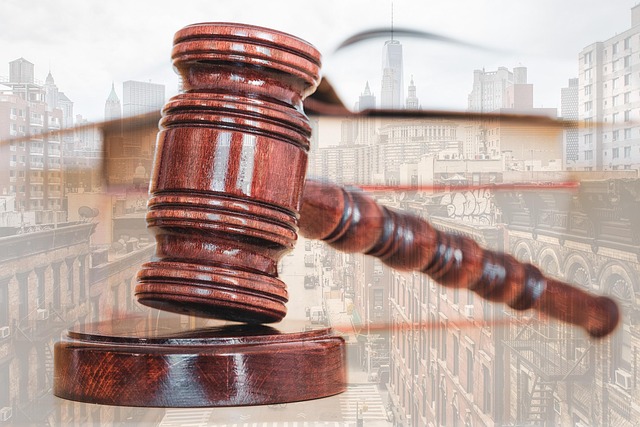Healthcare Law Firms act as navigators in complex legal territories, specializing in interpreting medical regulations and protecting clients in high-risk white-collar defense cases. They focus on the Role of Evidence in Establishing Criminal Intent, employing strategic evidence gathering and presentation techniques to ensure robust defenses. Through expert testimony, they bridge technical jargon, ensuring fair representation and upholding corporate integrity while navigating stringent healthcare regulations.
Healthcare Law Firms play a pivotal role in navigating complex legal landscapes, ensuring patient safety and justice. This article delves into their unique position, focusing on three critical aspects. We explore evidence collection as a cornerstone for uncovering criminal intent, highlighting its significance in healthcare litigations. Additionally, we dissect legal strategies employed to tackle intricate cases, underscoring the importance of expert testimony. By understanding these elements, we gain insights into how law firms mitigate risks and drive positive change within the healthcare sector, emphasizing the critical role of evidence in establishing criminal intent.
- Understanding Healthcare Law Firms: Their Unique Role
- Evidence Collection: Uncovering Criminal Intent
- Legal Strategies: Navigating Complex Cases
- Impact of Expert Testimony in Healthcare Litigations
Understanding Healthcare Law Firms: Their Unique Role
Healthcare Law Firms play a unique and pivotal role in navigating complex legal landscapes, especially in high-stakes cases involving white collar defense. These firms are adept at interpreting intricate regulations and laws pertaining to medical practices, insurance coverage, patient rights, and privacy concerns. Their expertise is invaluable when it comes to resolving disputes, drafting policies, or representing healthcare providers and institutions.
In many instances, the Role of Evidence in Establishing Criminal Intent is a critical aspect where these law firms excel. They employ strategic approaches to gather and present evidence, ensuring their clients receive robust legal defense. By understanding the nuances of healthcare legislation and utilizing effective advocacy techniques, these firms safeguard the interests of their clients, be it negotiating settlements or defending against accusations in court.
Evidence Collection: Uncovering Criminal Intent
In healthcare law, the role of evidence is paramount when establishing criminal intent, especially in cases involving white-collar offenses. The process of uncovering and presenting compelling evidence is a critical aspect of achieving extraordinary results in complex legal matters across the country. Lawyers specializing in this field must possess a keen eye for detail to navigate the intricate web of documentation, electronic records, and witness testimonies that can incriminate or exonerate their clients.
Effective evidence collection strategies are essential to building a robust defense. This involves meticulous examination of financial records, medical reports, and communication logs to identify discrepancies and patterns indicative of criminal activity. By employing these tactics, healthcare law firms can ensure their clients receive fair representation, regardless of the high-stakes nature of such cases.
Legal Strategies: Navigating Complex Cases
In the intricate landscape of healthcare law, navigating complex cases requires a strategic approach that goes beyond legal jargon. The role of evidence in establishing criminal intent is paramount, especially when dealing with sensitive issues like white-collar and economic crimes within the industry. Legal strategies must be meticulously crafted to avoid indictment and protect both corporate and individual clients.
Firms specializing in healthcare law understand that every detail matters. They employ sophisticated techniques to gather and interpret evidence, ensuring it aligns with the specific charges. Whether defending against accusations of fraud or addressing issues related to patient data privacy, these legal experts help clients navigate labyrinthine regulations. Their goal is to foster a symbiotic relationship between corporate integrity and legal compliance, ultimately steering clear of costly disputes and potential criminal charges.
Impact of Expert Testimony in Healthcare Litigations
In healthcare litigations, expert testimony plays a pivotal role in navigating complex legal landscapes. It provides critical insights and helps establish the role of evidence when determining criminal intent. Highly qualified experts can break down intricate medical concepts for juries, ensuring they understand the nuances of the case. This is particularly crucial in industries where regulations are vast and interpretations can significantly impact outcomes.
Expert witnesses offer impartial analyses, which can be instrumental in avoiding indictment or misconstrual. Their testimony helps to bridge the gap between technical jargon and understandable evidence, a factor that shapes public perception and decisions within philanthropic and political communities. Ultimately, their role is to ensure fairness and accuracy in legal proceedings for respective businesses operating within the healthcare sector.
Healthcare law firms play a pivotal role in navigating complex legal landscapes, especially in cases involving criminal intent. By leveraging expert testimony and robust evidence collection strategies, these firms can significantly impact healthcare litigations. Understanding the unique challenges within healthcare law and employing effective legal strategies are key to achieving justice. The Role of Evidence in Establishing Criminal Intent is paramount, as it provides the necessary clarity and context for even the most intricate cases.






